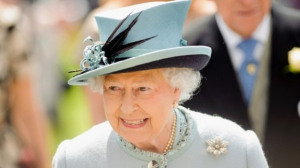
This week, in Edinburgh, the Church of Scotland is meeting in the General Assembly. The Assembly is the Supreme Court of the Church and is charged with making laws and setting the agenda for the Church for the coming year. There is strict separation of Church and State in Scotland however, the Church of Scotland is the official Church.
The Assembly is presided over by the Moderator of the General Assembly of the Church of Scotland, he or she presides at meetings, leads the daily worship, but is not the head of the Church of Scotland that power resides in the Kirk.
The first Assembly was held in 1560 at the time of the Scottish Reformation and in its current form is made up of 850 Commissioners that represent the 48 Presbyteries of the Church. The Sovereign, at the time of her ascent to the Throne, takes an oath to preserve the Church of Scotland at a meeting of the Privy Council immediately following his or her accession to the throne.
The Sovereign may attend the Assembly, as a non-voting member, in person or by appointment of the Lord High Commissioner. The person chosen for this role is usually someone involved in Scottish society and the Church but also has a close relationship with the Sovereign. The Lord High Commissioner makes opening and closing remarks at the Assembly and carries out several official visits as well as hosting a garden party for all Commissioners at the Palace of Holyroodhouse prior to the start of the Assembly.
Regardless of the rank of the person chosen by the Sovereign as the Lord High Commissioner the title used during the Assembly is His Grace the Lord High Commissioner (or Her Grace in the case of a woman being selected.) In 2014 Her Majesty the Queen has chosen her son, HRH The Earl of Wessex to serve as Lord High Commissioner.
Prior to the start of the Assembly the Sovereign sends a message of greetings to the Moderator and announces the appointment of the Lord High Commissioner. As this is also the year of referendum, when Scotland will vote on the question of separation from the United Kingdom, the Queen makes note of this and asks that “whatever the outcome, people of faith and people of goodwill will work together for the social good of Scotland.” The letter is printed below in it’s entirety.
Right Reverend and Well Beloved, We Greet You Well. We gladly renew on this occasion Our pledge to preserve and uphold the rights and privileges of the Church of Scotland. In doing so, We acknowledge, with Gratitude to Almighty God, the Church’s steadfast witness to the Christian faith and its services to our people in Scotland and in many lands overseas.
Throughout the history of Scotland, the Church of Scotland has played a key part in shaping the governance of Scotland and Scottish society.
We recognise that contained within the articles declaratory of the Church of Scotland, church and state hold mutual duties towards one another.
So in this important year of referendum we pray that whatever the outcome, people of faith and people of goodwill will work together for the social good of Scotland.
We recognise too the important role that the church can play in holding the people of Scotland together, in healing divisions and in safeguarding the interests of the most vulnerable.
In this year in which Scotland will host the Commonwealth Games in Glasgow, we commend to you those who will come from around the world as competitors and spectators.
We are confident that the church will play its full part in welcoming, supporting and extending the hand of friendship to the diverse peoples of the Commonwealth.
This year the First World War will be remembered, when people around the world are called to commemorate the valour, courage and sacrifice of so many who gave their lives in the many battles that scarred Europe from 1914 to 1918.
As well as being a time of commemoration, we believe that it is a time to pray for the peacemakers of the world, and for a day when nations shall live at peace with one another.”
As always it pleases Us greatly to be informed of the many good works of the Church over this past year and in particular We are greatly encouraged by the joint venture with the Church of England and the Methodist Church in founding the Churches Mutual Credit Union. We welcome this initiative as another example of the way in which the Churches seek to serve the needs and interests of the poorest and most vulnerable in our society.
Once again We are conscious that in this Assembly you will give consideration to matters which will lead to passionate debate, in these circumstances We pray that your considerations will be marked by gracious contributions and Our prayers will be for the peace and unity of the Church of Scotland.
May your faith and courage be strengthened in your deliberations during the week ahead and through the times to come.
As We are unable in Our Own Person to be present at your Assembly this year, We have chosen Our most dearly beloved Son His Royal Highness The Prince Edward, Earl of Wessex, Viscount Severn to be Our representative being assured that Our choice will meet with your approval.
And so, praying that the blessing of Almighty God may attend your deliberations, We bid you heartily farewell.
